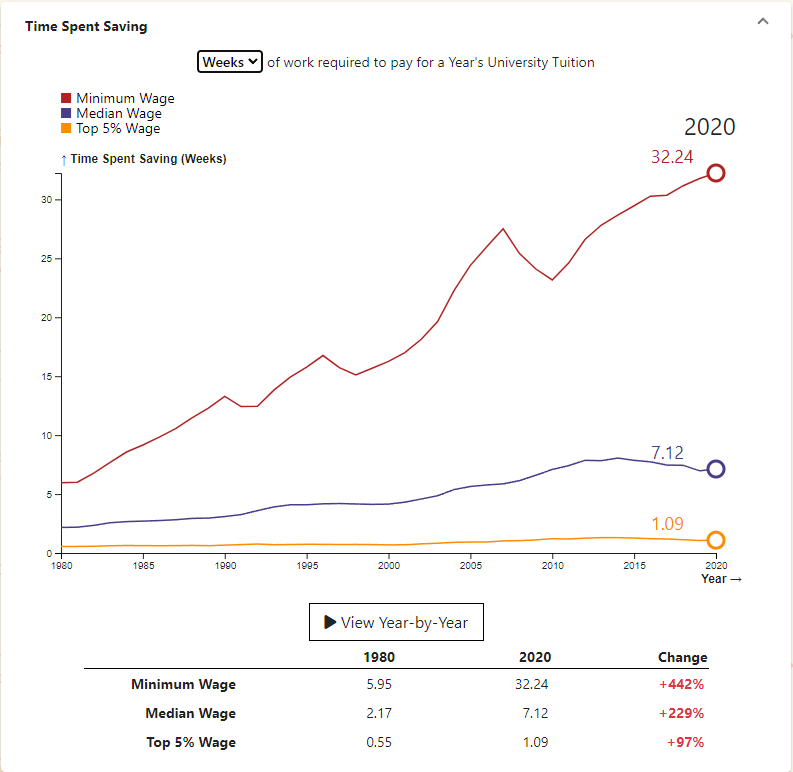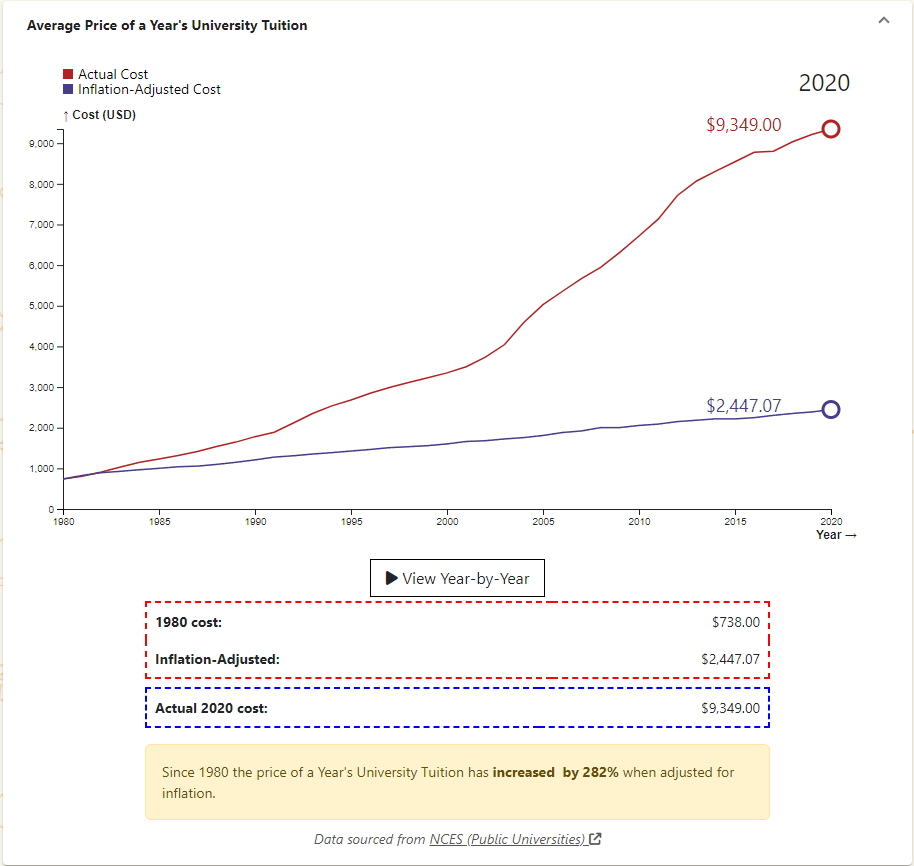
Workers have to work for a longer period of time in order to afford University Tuition than they used to in 1980. The trend is hardest on minimum wage workers who have to work 32.24 weeks of full-time work in 2020 to afford tuition, compared to 5.95 weeks of full-time work in 1980. This ignores taxes and assumes all money earned is put toward tuition.
Since 1980 the price of a Year’s University Tuition has increased by 282% when adjusted for inflation.

Wages have gone up nominally, but not as much when accounting for inflation. The minimum wage has decreased since 1980 after adjusting for inflation.

Sources:
- Median and Top 5% Income: Census.gov (Table H-3)
- Minimum Wage: Department of Labor
- Year’s University Tuition: NCES (Public Universities)
Visualized on boomerchecker.com
Edit:
- Fixed an error when converting Median and Top 5% from annual to weekly. The time to save for those two brackets rose as a result.
- Added wage data for the different wage brackets for reference.

How much work does it take to label your axis?
Updated for humor - but in all seriousness good data visualization on how out of reach college is becoming for an increasing amount of people. Your accounting for all wages being absolute take home also drives home the fact that the # of weeks required is going to be much much higher.
Hahaha, fair enough. I threw some axis labels on there.